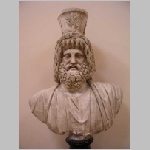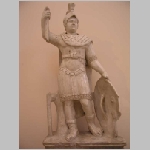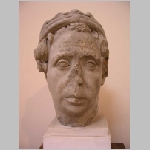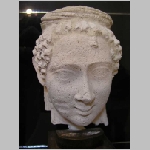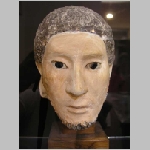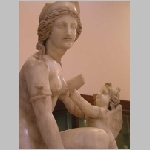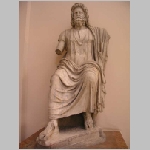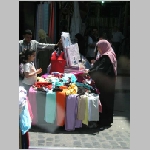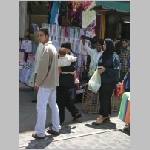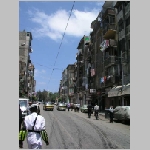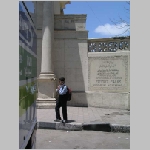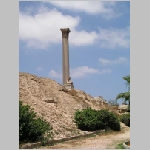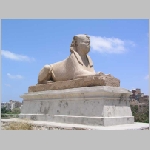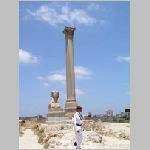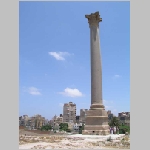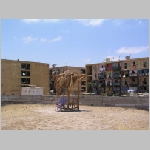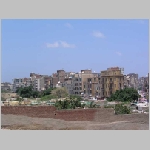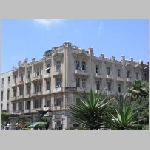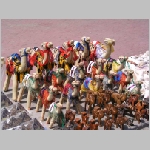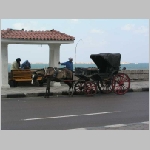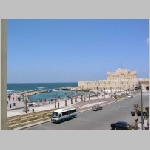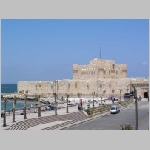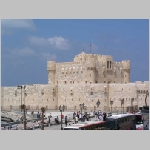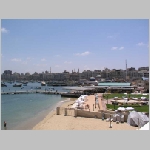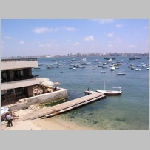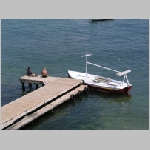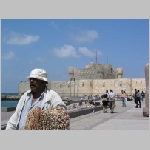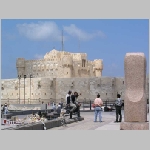Alexandria
Click on thumbnail to view larger picture
Alexandria is located in the Nile River delta on a ridge that separates Lake Maryoş from
the Mediterranean Sea. The city was founded in 332 BC by Alexander the Great who planned it as one of the finest
ports of the ancient world. Our first stop was to visit the Greco-Roman Museum which was first built in 1892 but
relocated in 1895. The museum itself changed considerably as there were eleven galleries originally, but in time
extended until the 25th gallery was added in 1984. There are many statues and artefacts on display and one of the main attractions here
is the extensive coin collection which is unique in its presentation.
|
We left the museum and drove through the streets to get an idea of life in modern Alexandria. We passed the markets,
where lots of bartering was happening and noted the melon seller who had lots to sell that day. The population in the
very early days consisted of Greeks, Jews, and Egyptians and the city is still multicultural today. Soon after the
city was founded, the population consisted of approximately 300,000 free citizens as well as slaves and foreigners.
One of the fascinating buildings here is the Alexandrian Library and Museum. This library held the largest collection of books
in the ancient world and was developed as schools of learning and philosophy were established. Unfortunately the library
was ravished over the years and now a new building and collection has been established.
|
We arrived at Pompey's Pillar which is the tallest ancient monument in Alexandria. It is an imposing 25mtr high structure
with a sphinx at its base. It was set on a site surrounded by housing complexes and there were many tv satellite dishes all
around. Our next visit was to the Catacombs of Kom El Shokafa. We climbed down the ancient stone stairs and admired some of
the ancient Pharaonic and Roman Art. There were lots of burial alcoves dug into the sides of the tunnel and a well down
deep in the diggings.
|
One sight not to be missed was the Citadel of Qaitbay. The Citadel is situated at the entrance of the eastern
harbour on the eastern point of the Pharos Island. It was erected on the exact site of the famous Lighthouse of
Alexandria, which was one of the Seven Wonders of the Ancient World. It was built to be a defensive fortress on the Mediterranean Sea coast
| 